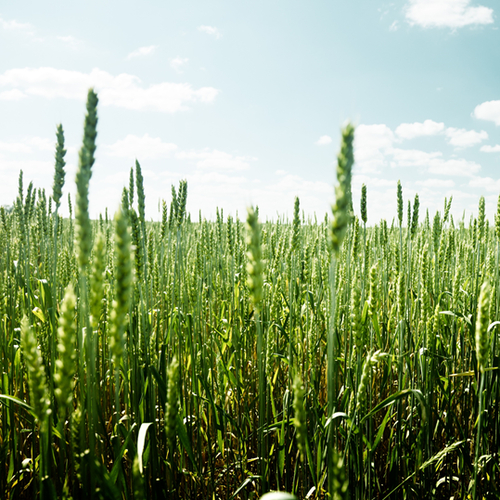
Rye grass
Scientific names: Secale cereale
Family: Poaceae/Gramineae
Alternate names: Ballico, Cernilton, Cernitin, Extrait de Pollen d'Ivraie, Extrait de Pollen de Plante Herbacée, Flower Pollen Extract, Graminex, Grass Pollen Extract, Ivraie, Pollen d'Ivraie, Pollen de Plante Herbacée, Pollen Extract, Raygrás, Ray-Grass, Rye, Rye Grass Pollen Extract, Rye Pollen Extract, Rye-Grass Pollen, Rye-Grass Pollen Extract
Background
Rye grass (Secale cereale) is a cereal grain. A product made from rye grass pollen extract (Cernilton) is a registered pharmaceutical product in Europe.
Chemicals in rye grass pollen seem to decrease swelling and relax certain muscles, which might relieve symptoms of an enlarged prostate. These chemicals might also slow the growth of prostate cancer cells. Rye grass fiber might increase the growth of healthy bacteria in the gut.
People use rye grass for prostate conditions such as benign prostatic hyperplasia (BPH), prostate pain, and ongoing swelling of the prostate. It is also used for constipation and other conditions, but there is no good scientific evidence to support these uses.
Chemicals in rye grass pollen seem to decrease swelling and relax certain muscles, which might relieve symptoms of an enlarged prostate. These chemicals might also slow the growth of prostate cancer cells. Rye grass fiber might increase the growth of healthy bacteria in the gut.
People use rye grass for prostate conditions such as benign prostatic hyperplasia (BPH), prostate pain, and ongoing swelling of the prostate. It is also used for constipation and other conditions, but there is no good scientific evidence to support these uses.
Safety Safety definitions
When taken by mouth: Rye grass is commonly consumed in foods. Rye grass pollen extract is likely safe when used appropriately for up to 24 weeks. It's usually well-tolerated. Side effects might include bloating, heartburn, and nausea.
Special Precautions & Warnings:
Pregnancy and breast-feeding: There isn't enough reliable information to know if rye grass is safe to use when pregnant or breast-feeding. Stay on the safe side and avoid use.Effectiveness
NatMed Pro rates effectiveness based on scientific evidence according to the following scale: Effective, Likely Effective, Possibly Effective, Possibly Ineffective, Likely Ineffective, Ineffective, and Insufficient Evidence to Rate.
Possibly effective Effectiveness definitions
- Enlarged prostate (benign prostatic hyperplasia or BPH). Taking rye grass pollen extract by mouth seems to improve symptoms such as pain in people with mild to moderate BPH.
- A condition that causes persistent pelvic pain, urinary problems, and sexual problems (Chronic prostatitis and chronic pelvic pain syndrome). Taking rye grass pollen extract by mouth might relieve some symptoms of chronic prostatitis and chronic pelvic pain syndrome.
Dosing & administration
Rye grass pollen extract has most often been used by adults at doses of 126 mg by mouth two to three times daily for up to 24 weeks. Speak with a healthcare provider to find out what dose might be best for a specific condition.
Interactions with pharmaceuticals
It is not known if Rye Grass interacts with any medicines. Before taking Rye Grass, talk with your healthcare professional if you take any medications.
Interactions with herbs & supplements
There are no known interactions with herbs and supplements.
Interactions with foods
There are no known interactions with foods.
vital.ly has licensed monographs from TRC Healthcare.
This monograph was last reviewed on 03/10/2024 10:00:00. Monographs are reviewed and/or updated multiple times per month and at least once per year.
Natural Medicines disclaims any responsibility related to medical consequences of using any medical product. Effort is made to ensure that the information contained in this monograph is accurate at the time it was published. Consumers and medical professionals who consult this monograph are cautioned that any medical or product related decision is the sole responsibility of the consumer and/or the health care professional. A legal License Agreement sets limitations on downloading, storing, or printing content from this Database. No reproduction of this monograph or any content from this Database is permitted without written permission from the publisher. It is unlawful to download, store, or distribute content from this site.




